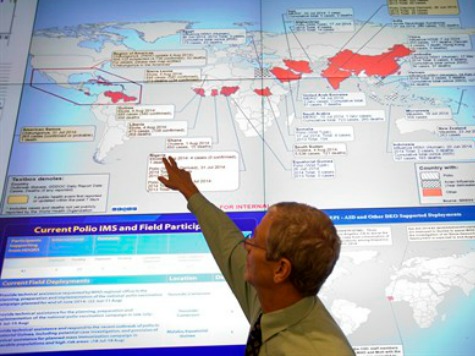This article originally appeared at Slate:
It’s nine months into the biggest Ebola outbreak in history, and the situation is only going from bad to worse. The outbreak simmered slowly in West Africa from December 2013, when the first case was retrospectively documented, through March, when it was first recognized by international authorities.
It began gaining momentum in June and throughout July. Now, terms like “exponential spread” are being thrown around as the epidemic continues to expand more and more rapidly. Just last week, an increase of 700 new cases was reported, and the case count is now doubling in size approximately every three weeks.
Already, the number of cases (approximately 5,300 as of Sept. 18) and deaths (2,630) has dwarfed the total number of cases and deaths from every reported Ebola outbreak in history–and those are only the cases that we know about. Here’s where we stand with Ebola right now.
The situation on the ground
By all accounts, it’s understandably miserable everywhere Ebola has hit, but even experienced international disaster responders have been shocked at how bad it has gotten. A Doctors Without Borders worker in Monrovia, Liberia, named Jackson Naimah describes the situation in his home country, noting that patients are literally dying at the front door of his treatment center because it lacks patient beds and assistance; the sufferers are left to die a “horrible, undignified death” and potentially infect others as they do so:
One day this week, I sat outside the treatment center eating my lunch. I saw a boy approach the gate. A week ago his father died from Ebola. I could see that his mouth was red with blood. We had no space for him. When he turned away to walk into town, I thought to myself that this boy is going to take a taxi, and he is going to go home to his family, and he will infect them.
When health care workers aren’t available, or when patients are too fearful to take loved ones to a clinic, it falls to those closest to the ill to nurse them. This has wiped out entire families, “prey[ing] on care and love, piggybacking on the deepest, most distinctly human virtues,” turning caregivers into victims as the virus passes among siblings and parents, from one generation to the next.
Health care workers who are treating the sick are dying because they also lack basic protective equipment, or because they have been so overwhelmed by taking care of the ill and dying that they begin to make potentially fatal errors. They have gone on strike in Liberia because they are not being adequately protected or even paid for their risky service. Hearses have been commandeered as ambulances; motorcycles are used to transport patients long distances, putting drivers at risk of becoming the next victim.

COMMENTS
Please let us know if you're having issues with commenting.